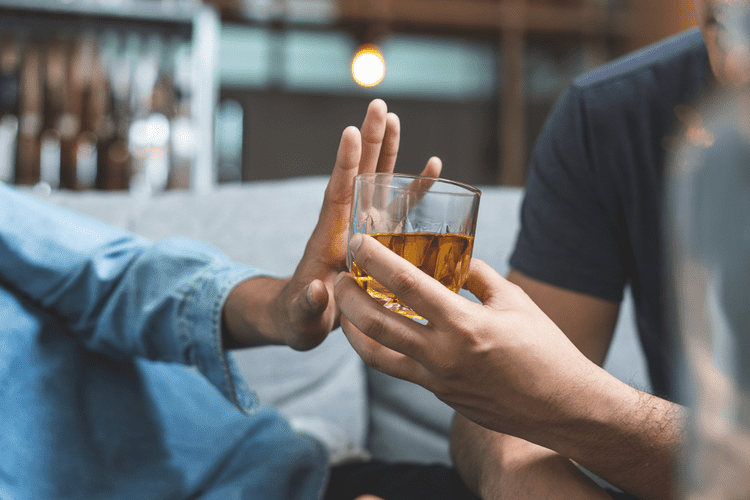Trazodone, a sedating antidepressant, is the medication most commonly prescribed by addiction experts for insomnia among sleep-disturbed alcoholics (85). We are performing an ongoing clinical trial to examine its effect on sleep and alcohol outcomes in early recovery. Ritanserin, a specific 5-hydroxytryptamine antagonist was tested at three doses against placebo over 6 months in a randomized trial with 493 detoxified alcohol-dependent individuals (86). None of the three dosages revealed significant improvement over placebo in sleep quality in persons without psychiatric disorders. During the first two weeks after detoxification, five days of carbamazapine was superior to lorazepam in improving sleep for patients with mild to moderate alcohol withdrawal (87). Gabapentin, an anticonvulsant, in an open label, uncontrolled study, also showed promise as a safe and effective treatment for alcohol-dependent patients with insomnia during early recovery (88).

Sometimes it is hard to fall or stay asleep because your thoughts are racing. You find it hard to keep your mind quiet long enough to fall asleep. This can also make it hard to insomnia after drinking fall back asleep if you are woken up in the middle of the night. Studies have shown that symptoms of insomnia are five times higher for those quitting alcohol than for others.
Up all night? New study shows how caffeine packed energy drinks can disrupt your sleep
This phenomenon suggests a relatively long-lasting change in sleep regulation. When it comes to insomnia and alcohol withdrawal, sleep disorder can be a huge danger for two reasons. A lack of sleep can have a severe effect on mental health, making moods inconsistent, inducing depression and worsening anxiety.
Insomnia is a common condition where a person has trouble falling asleep or staying asleep. Up to 40% of the general population experiences insomnia, while as many as 72% of people with an alcohol use disorder may have the condition. Sleep disorders like insomnia can co-occur with alcohol abuse, and treating insomnia can improve a person’s sleep quality while in recovery. However, it is for persistent insomnia, which can lead to alcohol relapse, that better and safer treatments are needed. Benzodiazepines produce tolerance and lose their sleep-promoting properties within 2 weeks. Physical dependence and withdrawal phenomena occur with long-term use of benzodiazepines, and all medications in this class can cause rebound insomnia following discontinuation.
How does alcohol affect sleep quality?
If you’re in recovery and having sleep problem, it’s important to discuss the situation with your doctor. There are medications, behavioral therapies, and other approaches your doctor can recommend. The information we provide while responding to comments is not intended to provide and does not constitute medical, legal, or other professional advice.
- See how your sleep habits and environment measure up and gauge how adjusting behavior can improve sleep quality.
- Doing the emotional work of recovery has ripple effects throughout your entire life, including your physical health.
- I vividly remember the day I began supplementing with magnesium during post-acute withdrawal.
- I was tapered off of this medication slowly over the course of two weeks, because benzodiazepines stimulate GABA receptors powerfully and can cause addiction in a short time span.
- The company claimed it clearly advertises the drink as for those 18-up and that another of its drinks, PRIME Hydration, has no caffeine.
